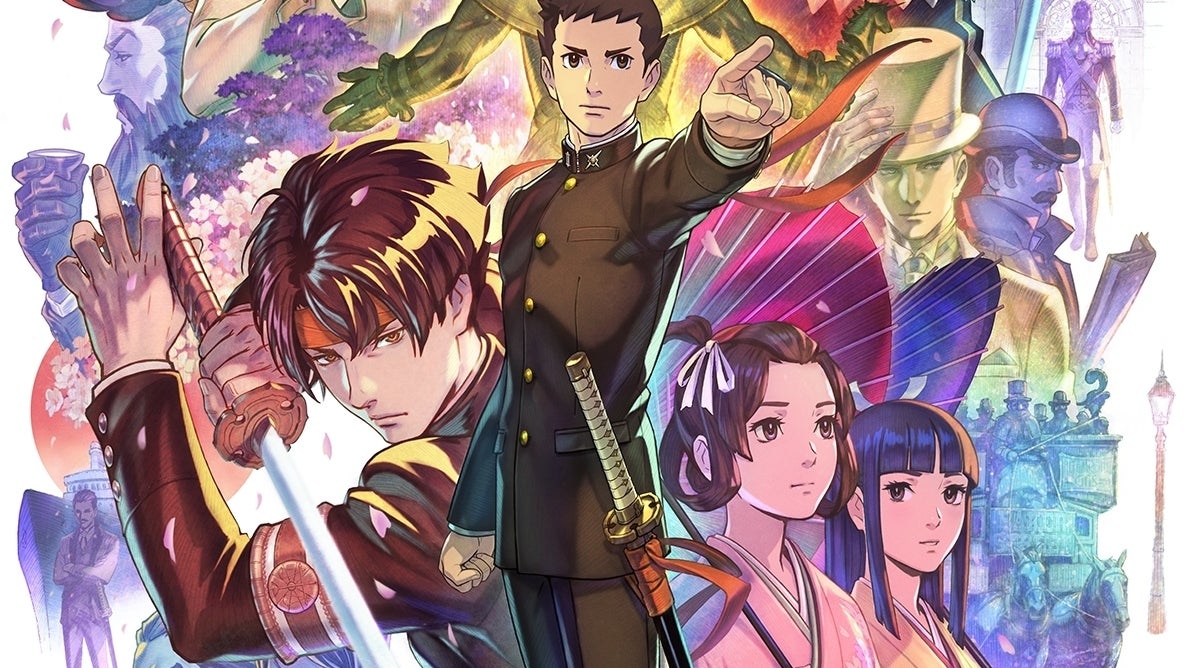Offering a more serious approach to Ace Attorney’s courtroom battles, The Great Ace Attorney Chronicles still offers a host of colourful characters and unlikely methodologies, but comes across as a very different game overall, for both good and bad. Thanks to Ace Attorney’s brilliant localisation, The Great Ace Attorney’s setup feels like a joke you have to explain to people: your protagonist Ryunosuke Naruhodo is supposed to be an ancestor of Phoenix Wright, who’s originally named Ryuichi Naruhodo. The rename exemplifies a problem that up until very recently wasn’t uncommon for Japanese media; the belief that a Japanese work’s cultural connotations could confuse or overwhelm western audiences unless adopted as something else. It’s a reason that’s been used for not localising certain Shin Megami Tensei or Yakuza games, too.
The Great Ace Attorney Chronicles review
- Developer: Capcom
- Publisher: Capcom
- Platform: Played on Switch
- Availability: Out July 27th on Switch, PS4 and PC
The localisation made Ace Attorney in the west its own cultural product, amping up the silliness with punny names and references to western culture, but The Great Ace Attorney is a decidedly Japanese duology (some characters have still been renamed for that extra bit of punny goodness). It’s set in the Japanese Meiji period, or the British Victorian era, a time of pivotal importance to both countries, and I see both games as comment on that time in history, rather than a collection of increasingly dramatic court cases.
Circumstances of the first case thrust the hapless Ryunosuke into the limelight, suddenly required to defend himself in court. You learn all the mechanics of previous Ace Attorney games – you listen to witness testimonies, followed by a cross-examination. During the cross-examination, you can ask witnesses to elaborate on a statement by pressing them on it, potentially gleaning new information in the process. Your court record holds all your current evidence, and once you spot a statement that’s inconsistent with the evidence, you present it with the famous shout of “Objection!”
At the beginning, Ryunosuke objects very little – he begins his career as a lawyer by shouting “yes!” and awkwardly raising his hand, growing more confident over time. Following a tragic event, he ends up completing a highspeed education as a lawyer while on a steam boat to England, where he meets the great consulting detective Herlock Sholmes. In England, things work a little differently – courts use a jury system, which means Ryunosuke has to convince the jury as well as the judge. Gameplay-wise, this idea doesn’t add much. There will be a point in every trial where the jury unanimously decides the defendant is guilty, triggering a Summation Examination. In it, every jury member has to give a reason for the decision, and you’re asked to pit opposing statements against each other so the jury is no longer in agreement and the trial can continue.
It’s a nice idea on paper, but it always plays out the same, and basically only serves to make each very long case only longer. The same goes for the cross-examination of multiple witnesses on the stand, an idea taken over from Professor Layton vs. Phoenix Wright. As you press one witness, the other may startle or loudly go “aha!” giving an inconsistency away in the most obvious manner possible, a pretty hamfisted way to gather new information.
